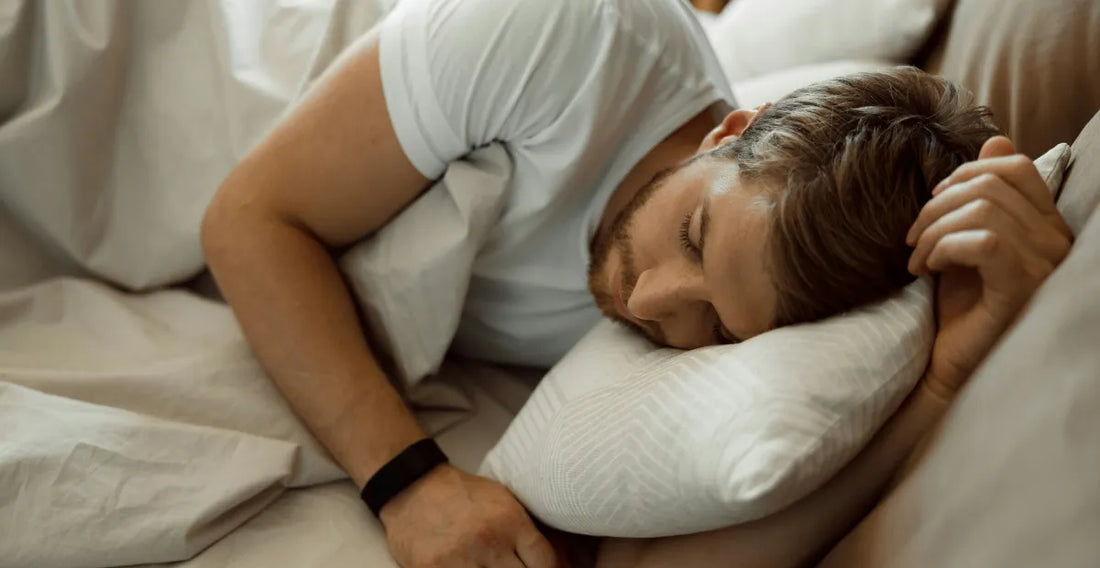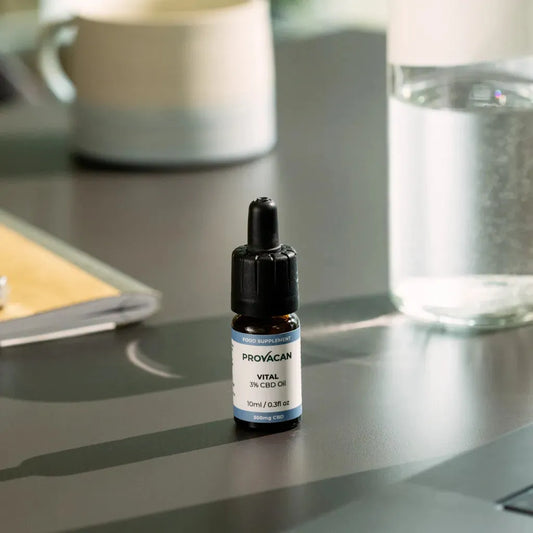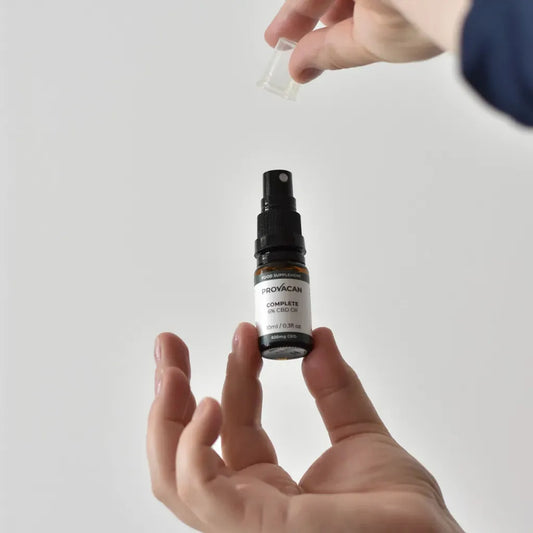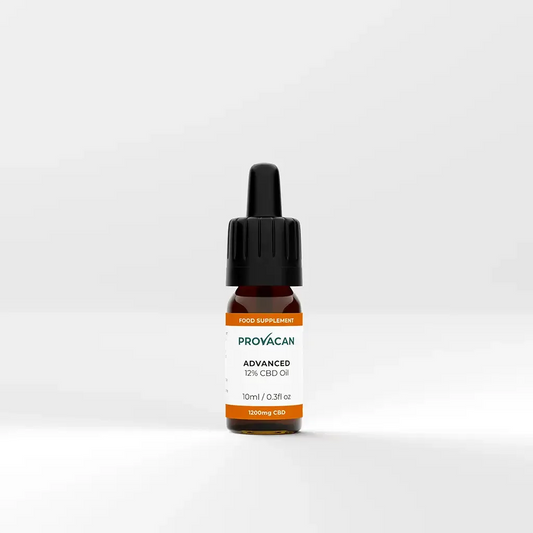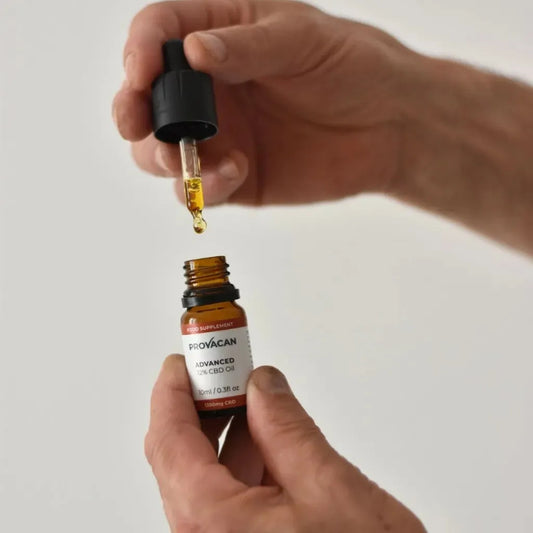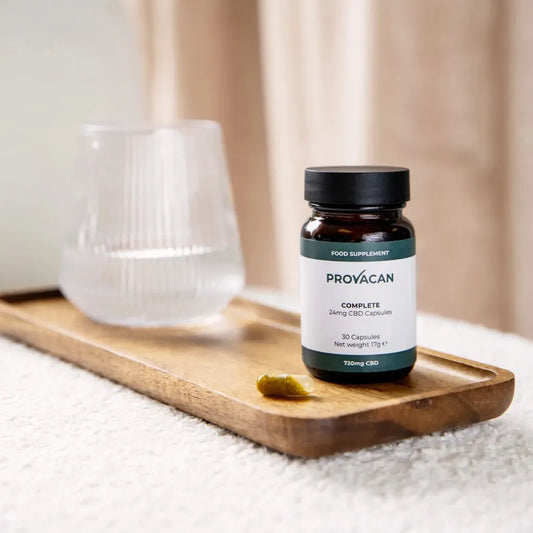In recent years, there has been growing interest in the potential benefits of CBD for sleep. CBD, short for cannabidiol, is one of the many compounds found in the cannabis plant. Unlike its counterpart THC, CBD does not have psychoactive effects and is believed to offer a range of therapeutic properties. But what exactly is the relationship between CBD and sleep? Let's delve deeper into this topic and explore the latest research and expert recommendations.
Understanding the Relationship Between CBD and Sleep
Sleep plays a vital role in our overall well-being, and inadequate sleep can have significant impacts on our physical and mental health. With the rise in sleep disorders and difficulties, many individuals are searching for natural remedies to help improve sleep quality. This is where CBD comes into the picture.
Researchers believe that CBD may interact with the body's endocannabinoid system (ECS), helping to regulate various functions, including sleep. The ECS is a complex network of receptors and neurotransmitters that plays a crucial role in maintaining balance and homeostasis in the body.
The Link Between Anxiety, Stress, and Sleep
One of the key factors that can disrupt sleep is anxiety and stress. It's no secret that these psychological conditions can cause racing thoughts, restlessness, and difficulty falling asleep. This is where CBD's potential calming properties may come into play.
Studies have suggested that CBD may help reduce anxiety and stress levels by interacting with serotonin receptors in the brain. By modulating the release of serotonin, CBD may alleviate anxiety symptoms and promote relaxation, ultimately leading to a better night's sleep.
Breaking Down the Impact of Anxiety on Sleep Quality
Anxiety can have a profound impact on the quality of sleep individuals experience. It can lead to increased levels of cortisol, the stress hormone, which can keep individuals awake at night. Additionally, anxiety can cause intrusive thoughts and hyperarousal, making it challenging to achieve a state of deep sleep.
This is where CBD's potential intervention may hold promise. Several studies have suggested that CBD may reduce anxiety symptoms and improve sleep quality. By reducing anxiety-induced sleep disturbances, CBD may help individuals achieve a more restful and rejuvenating sleep experience.
Stress-Induced Sleep Disturbances and CBD's Potential Solution
Just like anxiety, stress can wreak havoc on our sleep. Whether it's work-related stress, financial worries, or personal issues, stress can make it difficult to unwind and fall asleep easily.
Preliminary research indicates that CBD may have stress-relieving effects due to its interaction with the ECS. By modulating stress responses and promoting relaxation, CBD may help individuals cope with stress better and improve sleep quality. However, further research is needed to fully understand the mechanisms behind CBD's potential stress-relieving properties.
Unravelling the Mysteries of Insomnia: Can CBD Provide Answers?
Insomnia is a sleep disorder characterized by difficulty falling asleep, staying asleep, or experiencing non-restorative sleep. It can be caused by various factors, including medical conditions, medication side effects, and psychological disturbances.
CBD has garnered attention as a potential natural remedy for insomnia. Its interaction with the ECS, coupled with its potential anti-inflammatory and analgesic properties, has led researchers to explore its effects on sleep disorders.
Understanding the Complexities of Insomnia
Insomnia is a multifaceted sleep disorder that can have a significant impact on an individual's quality of life. It can lead to daytime fatigue, impaired cognitive function, and mood disturbances. Understanding the complexities of insomnia is essential in identifying potential treatment options, including CBD.
Researchers are still unraveling the underlying causes of insomnia, with factors such as genetic predisposition, circadian rhythm disruptions, and psychosocial factors playing crucial roles. By targeting these underlying mechanisms, CBD may hold promise in alleviating insomnia symptoms.
Recent Studies on CBD and Insomnia: What Do They Reveal?
Several recent studies have investigated the potential benefits of CBD in treating insomnia. These studies have shown promising results, with CBD demonstrating potential in reducing sleep latency (the time it takes to fall asleep), increasing total sleep time, and improving sleep quality.
However, it is essential to note that most of the studies conducted so far are small-scale and may have limitations. More comprehensive research, including randomized controlled trials, is needed to provide a clearer understanding of CBD's efficacy in treating insomnia.
Dosage, Timing, and Other Considerations
When it comes to using CBD for sleep, finding the right dosage and timing is crucial. Since CBD affects individuals differently, a personalized approach is necessary to optimize its benefits.
Experts recommend starting with a low CBD dosage and gradually increasing it until the desired effects are achieved. It is important to consult with a healthcare professional experienced in CBD use to determine the appropriate dosage for your specific needs.
Finding the Right Dosage: A Personalized Approach
When finding the right CBD dosage, factors such as body weight, metabolism, and the severity of sleep disturbances should be taken into account. It is advisable to start with a conservative dose and assess its effects before adjusting accordingly.
Keeping a sleep journal can also be helpful in tracking the effects of CBD on sleep patterns. By noting the dosage, timing, and sleep quality, individuals can identify trends and make informed adjustments to optimize their CBD experience.
The Best Time to Take CBD for Sleep: Expert Recommendations
The timing of CBD intake can also influence its effects on sleep. When to take CBD oil for sleep? Experts suggest taking CBD 30 minutes to an hour before bedtime to allow sufficient time for absorption and potential onset of calming effects.
Individuals should experiment with different timing strategies and monitor their sleep patterns closely to determine the optimal time for taking CBD. Additionally, it is advisable to avoid taking CBD with caffeine or other stimulants that may counteract its calming effects.
Real-Life Experiences: Anecdotal Evidence on CBD and Sleep
While scientific research provides a foundation for understanding CBD's potential effects on sleep, anecdotal evidence also offers valuable insights. Many individuals have shared their success stories of improved sleep quality after incorporating CBD into their bedtime routine.
From reduced anxiety and improved mood to enhanced relaxation and fewer sleep disruptions, personal accounts often highlight CBD's potential as a natural remedy for sleep difficulties.
Personal Journeys: Success Stories of Improved Sleep with CBD
Individual experiences with CBD for sleep can vary, but many people have reported positive outcomes. Some individuals have found that CBD helps them fall asleep faster, while others have observed an improvement in their overall sleep quality.
It's important to remember that what works for one person may not work for another. Additionally, individual circumstances, underlying health conditions, and lifestyle factors can influence the results.
Potential Challenges: Addressing Concerns and Misconceptions
Despite CBD's potential benefits for sleep, there are still misconceptions and concerns surrounding its use. One common concern is the potential for side effects. While CBD is generally well-tolerated, it can cause drowsiness, dry mouth, and changes in appetite or mood. It is advisable to start with a low dose and monitor for any adverse effects.
Another challenge is the lack of regulation in the CBD industry. The quality and consistency of CBD products can vary, making it crucial to choose reputable brands and products that undergo third-party testing for purity and potency.
The Future of CBD and Sleep Research
As interest in CBD and managing insomnia continues to grow, researchers are actively exploring the potential therapeutic applications and underlying mechanisms. The future of CBD and sleep research holds promise, with ongoing studies aiming to provide a better understanding of CBD's effects, optimal dosage, and long-term safety profile.
Emerging Trends: What the Future Holds for CBD and Sleep
Emerging trends in CBD and sleep research include investigating the effects of different CBD formulations, such as oils, capsules, and topical applications. Researchers are also exploring the potential synergistic effects of combining CBD with other natural sleep aids, such as melatonin or chamomile.
Furthermore, future studies may delve into CBD's effects on specific sleep disorders, such as sleep apnea or restless leg syndrome, to expand our knowledge and provide targeted treatment options.
Navigating the Landscape of CBD and Sleep
With the increasing popularity of CBD, it is essential for consumers to navigate the CBD landscape wisely. Understanding the available research, consulting with healthcare professionals, and choosing high-quality CBD products are crucial steps in optimizing the potential benefits of CBD for sleep.
Individuals considering CBD for sleep should also be mindful of potential drug interactions, as CBD may interact with certain medications. Understanding what not to do with CBD before bed is important - and it is always advisable to consult with a healthcare professional before incorporating CBD into your sleep regimen.
Buy CBD
With the market flooded with CBD products, it is important to make informed decisions when looking to buy CBD for sleep. Look for reputable brands that provide transparent information about their sourcing, extraction methods, and third-party testing.
Reading customer reviews and seeking recommendations from trusted sources can also help guide your purchasing decisions. Remember, investing in high-quality CBD products ensures you are getting the most out of this natural sleep aid.
In conclusion, CBD shows promise as a natural remedy for sleep difficulties, particularly in addressing anxiety, stress, and insomnia-related sleep disturbances. While more research is needed to fully understand its efficacy and long-term effects, CBD offers an intriguing avenue for individuals seeking alternatives to traditional sleep aids. By understanding the relationship between CBD and sleep and making informed choices, individuals can navigate this emerging field and potentially unlock the benefits of a good night's sleep.

